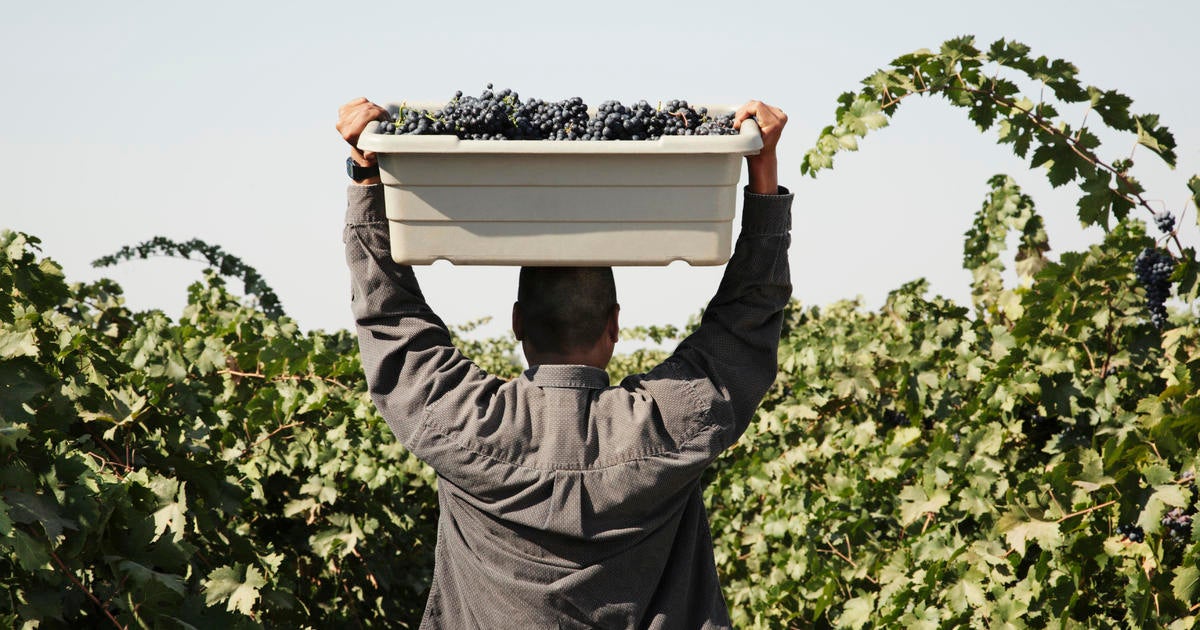In one of his first acts after returning to the Oval Office this week, President Trump tasked federal agencies with developing ways to potentially ease prices for U.S. consumers. But experts warn that his administration’s crackdown on immigration could both drive up inflation as well as hurt a range of businesses by shrinking the nation’s workforce.
“A reduction in labor supply means upward pressure on wages, which has different sector implications including inflationary pressure, especially for food prices,” Stephen Brown, deputy chief North America economist with Capital Economics, told CBS MoneyWatch.
David Bier, director of immigration studies at the Cato Institute, a libertarian think tank, said labor shortages stemming from the Trump administration’s push to remove undocumented immigrants could curtail the production of some products and services.
“Ultimately, the main way immigration affects inflation is that if jobs are left open and production is unable to keep up with demand, that’s going to lead to higher prices,” he said.
What sectors depend most on immigrant labor?
According to estimates from the nonpartisan Center for Migration Studies of New York and other groups, roughly 8.3 million undocumented immigrants work in the U.S, or just over 5% of the country’s workforce.
Undocumented immigrants account for about 20% of the agriculture industry’s overall workforce, although that figure can rise to roughly half for some speciality farms, according to Capital Economics, which advises large investors.
“It’s the key sector that comes up time and time again,” Brown said, noting that harvesting delicate fruit is more labor-intensive than, for example, growing cereal crops. That means mass deportations could lead to price hikes in the fruit aisle.
“The inflationary impact could affect food overall, but particularly fresher fruits, rather than the ingredients in more processed foods,” he said.
Construction companies, including businesses focused on home renovations and landscaping, have the next highest share of undocumented workers and would also likely face a labor shortage if the government clamps down.
“With regard to home improvement projects those prices, they might become unaffordable to the point where people feel they can’t do them anymore. And the lack of supply will be a big issue there, too,” Brown said.
Restaurants and food service businesses, which employ large numbers of undocumented workers, could be at particular risk if deportations flare. A shortage of workers would likely force such enterprises, including millions of small eateries around the U.S., to raise their wages to attract new employees. But that would also lead to hikes in menu prices, potentially driving away customers.
“They don’t necessarily have the ability to bid up wages, so it might be that those places just shut down because they don’t have the labor,” Brown said.
Removing large numbers of immigrants would drastically reduce the labor force, which could lead to rising wages, but potentially just higher prices for food, building and repairing homes, hotel stays and more things Americans hope to see lower prices for,” added Julia Gelatt, associate director of the U.S. immigration policy program at the Migration Policy Institute.
That’s because there are some jobs where even higher pay generally fails to attract U.S. born workers, like farming. “Wages might not rise and instead we’d just see a short-term lack of availability of workers for harvesting crops,” she said.
Bier of the Cato Institute notes that removing undocumented workers could also have a ripple effect on legally employed workers. For example, the construction industry has an estimated 2 million undocumented workers, but their bosses are mostly Americans.
“A lot of immigrants do jobs that support jobs held by Americans,” he said.
“The same thing is true in hospitality. Americans are more likely to be in management and supervisory roles, so if you pull a bunch of workers you’re supervising, there will be fewer jobs for those supervisors and you’ll see everyone leveling down,” Bier added. “The economic effects are going to be much more diffuse than people expect.”

